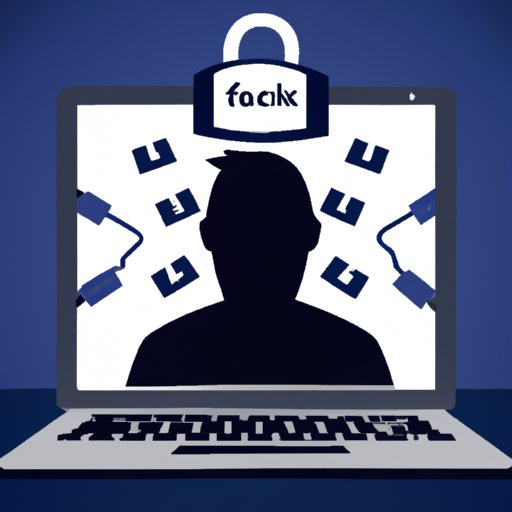
Introduction
Facebook has become an integral part of our daily lives. From sharing updates with friends to staying in touch with loved ones, Facebook plays a major role in connecting people. However, with its growing popularity, there has been a rise in Facebook account hacking. This issue has become a concern for many Facebook users, as it not only exposes personal data but also puts individual privacy at risk.
Signs of a Hacked Facebook Account
There are several common signs that can help you determine if your Facebook account has been hacked. For instance, unusual activity such as posts or messages sent from your account without your knowledge is a red flag. Another warning sign is if there has been any change to your account settings or information. Similarly, if friends report that they have received suspicious or unusual messages from your account, it may indicate that your account has been hacked.
General Tips for Securing Facebook Accounts
Securing your Facebook account is essential to protect it from hacking attempts. To help minimize the risks of Facebook account hacking, make sure to enable two-factor authentication. This additional security measure adds an extra layer of protection, requiring a login code sent to your phone when logging in from a new device. Additionally, creating complex passwords for your account, refraining from sharing personal information publicly, and being cautious when clicking on links or downloads are few other general tips for securing Facebook accounts.
Methods for Finding the Identity of a Facebook Account Hacker
Many individuals who become victim to a Facebook hack want to catch the perpetrator. There are various methods that can help identify a Facebook account hacker, including examining the suspicious activities that have occurred on the account, tracing the IP address used to log in to the account, and using specialized software and tools to track the hacker’s location. It is also helpful if the user maintains a record of all the recent activities such as changes in settings and friend’s lists.
Common Hacker Techniques to Be Aware Of
It is essential to be aware of some common hacking techniques to protect your Facebook account from future scams. One of the most widespread techniques involves phishing scams. In this method, hackers create false web pages and applications to get access to your login credentials. Another technique is social engineering, by which hackers use information obtained from social media to target specific individuals and hack their account. Always be aware of these tactics and take precautions when engaging with unknown sources online.
What to Do If Your Facebook Account Is Hacked
If you believe that your Facebook account has been hacked, do not panic. Report the hack to Facebook support, and they will provide the necessary assistance. Change your password immediately, and if possible, log out from all other devices. If the damage from the hack is severe, seek professional help or get in touch with a cyber-security expert to help you recover your account and secure it going forward.
Conclusion
Hacking is a growing problem, and Facebook is one of the prime targets for hackers. The rise of Facebook account hacking has resulted in increased privacy risks and data breaches for many users. By following the tips and techniques outlined in this article, you can minimize the risks of Facebook account hacking and protect your account and personal data. Remember, your online privacy is a vital aspect of your life, and securing your Facebook and other accounts from hackers should be a top priority.
Additional Resources
Here are a few additional resources that can help you learn more about Facebook account hacking and security measures:




